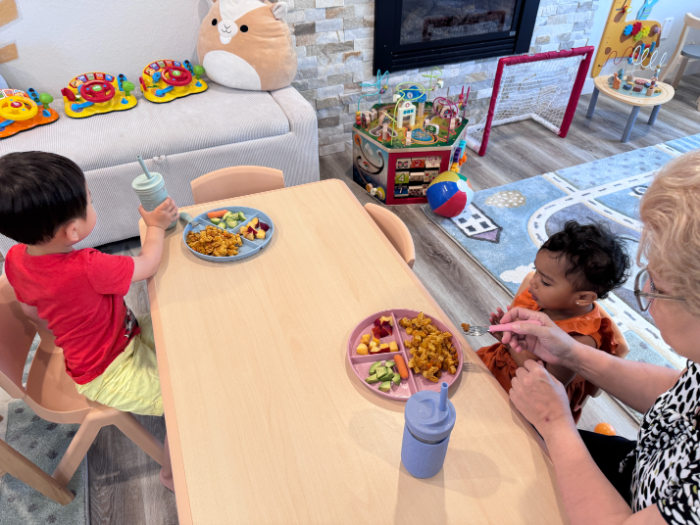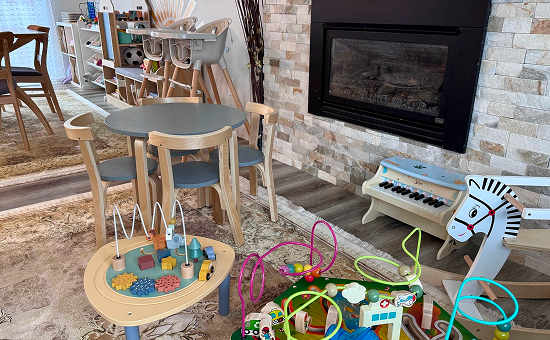Providing inclusive daycare and child care for infants and toddlers with special needs requires tailored strategies to support their unique developmental needs. From sensory-friendly environments to individualized care plans, caregivers can create nurturing spaces that promote growth. Early intervention and adaptive caregiving are key to ensuring these young children thrive. For expert strategies to implement inclusive care, read on.
Understanding Inclusive Childcare
What Is Inclusive Childcare?
Inclusive childcare ensures that infants and toddlers with special needs are fully integrated into daycare or home daycare settings alongside their peers. It involves adapting environments, routines, and activities to meet diverse developmental, physical, or sensory needs, fostering equal opportunities for growth.
Why Inclusion Matters for Young Children
Research shows that inclusive environments benefit children with special needs by promoting social skills, emotional regulation, and cognitive development. A 2023 study from the American Academy of Pediatrics found that early inclusion improves long-term developmental outcomes by up to 30%. Inclusive settings also help typically developing children learn empathy and collaboration.
Common Special Needs in Infants and Toddlers
Developmental Delays
Developmental delays, such as delayed speech or motor skills, are common in early childhood. These may require caregivers to adjust activities, like using repetitive play to reinforce skills, to support progress in a childcare setting.
Sensory Processing Disorders
Sensory processing disorders affect how children respond to stimuli like light, sound, or touch. For example, a toddler might be overwhelmed by loud noises in a daycare. Caregivers can use calming techniques to manage sensory sensitivities.
Physical Disabilities
Physical disabilities, such as cerebral palsy, may limit mobility or require adaptive equipment. Caregivers must ensure safe, accessible spaces and use tools like supportive seating to accommodate these needs.

Strategies for Adaptive Caregiving
Creating a Flexible Routine
Routines provide stability, but flexibility is key for children with special needs. For instance, allowing extra time for transitions or incorporating rest breaks can reduce stress for toddlers with developmental challenges.
Communication Techniques
Non-verbal children may benefit from visual aids, like picture schedules, or basic sign language. Caregivers can use simple gestures to communicate daily tasks, ensuring all children feel understood.
Safety and Accessibility
Daycare environments should be free of hazards and equipped with ramps, wide doorways, or adaptive furniture. Regular safety checks ensure that spaces remain inclusive for children with physical or sensory needs.
Sensory-Friendly Tools and Environments
Selecting Sensory-Friendly Toys
Toys like textured balls, soft blocks, or calming light projectors engage children with sensory needs without overwhelming them. For example, a weighted blanket can soothe a toddler prone to sensory overload.
Designing Sensory-Friendly Spaces
Create low-stimulation areas with dim lighting, soft textures, and minimal noise. A quiet corner with cushions and noise-canceling headphones can help children self-regulate in a busy daycare.
Managing Sensory Overload
When a child shows signs of sensory overload, such as covering ears or withdrawing, caregivers can guide them to a sensory-friendly space or use calming techniques like deep-pressure hugs.
Individualized Care Plans
Collaborating with Parents and Specialists
Caregivers should work closely with parents and specialists, such as occupational therapists, to develop individualized care plans. Regular meetings ensure plans reflect the child’s evolving needs.
Monitoring Progress and Adjusting Plans
Track developmental milestones, like improved motor skills, and adjust care plans as needed. For example, a toddler who masters a new skill may need updated activities to stay challenged.

Early Intervention Techniques
What Is Early Intervention?
Early intervention involves targeted therapies to support developmental progress in infants and toddlers. Programs often include speech therapy, physical therapy, or play-based activities to address delays early.
Implementing Early Intervention in Childcare
Caregivers can integrate early intervention by incorporating play-based therapies, such as stacking blocks to improve motor skills, into daily routines. These activities blend seamlessly into daycare schedules.
Partnering with Early Intervention Programs
Many communities, including Bothell, offer early intervention programs. Caregivers can connect with local resources to provide additional support, ensuring children receive consistent care.
Extending Inclusion to Preschoolers
Transitioning to Preschool Inclusion
Strategies for infants and toddlers, like sensory-friendly tools, can be adapted for preschoolers. For example, using visual schedules helps older children navigate group activities.
Social Inclusion in Group Settings
Encourage peer interactions through cooperative games or buddy systems. Pairing a child with special needs with a peer for a shared task fosters social bonds and inclusion.
Parental Involvement in Inclusive Care
Building Trust with Parents
Open communication builds trust. Caregivers should provide daily updates on a child’s progress and be receptive to parental feedback, ensuring a collaborative approach.
Empowering Parents with Resources
Offer parents access to resources like local support groups or workshops on special needs care. For example, Bothell’s community centers often host parenting seminars for families of children with disabilities.
About Kidoheaven
At Kidoheaven, we provide exceptional daycare and child care in Bothell, specializing in inclusive environments for infants, toddlers, and preschoolers. Our trained caregivers create sensory-friendly spaces, implement individualized care plans, and partner with families to support children with special needs. Discover how we foster growth and inclusion at kidoheaven.com.
Why KidoHeaven Stands Out
✅ Licensed in Washington State
✅ Aligned with Early Achievers standards
✅ Working Connections subsidy accepted
✅ Daily updates via Brightwheel
✅ Located in Bothell, serving Mill Creek, Lynnwood & nearby areas
✅ Nutritious snacks, safe outdoor space, & positive mealtime routines
📞 Call 206-734-2040 to schedule a tour
🌐 Enroll now
Follow Our Mealtime Moments
Stay updated with more beautiful outdoor meals and daily learning routines on:
Instagram | Facebook | Nextdoor | Yelp | Winnie | YouTube | Upwards
FAQ
What is inclusive childcare?
Inclusive childcare integrates children with special needs into daycare settings with tailored support, ensuring equal opportunities for growth.
How can daycare staff support sensory-sensitive children?
Staff can use sensory-friendly toys, create quiet spaces, and employ calming techniques to manage sensory sensitivities.
What are the benefits of early intervention in childcare?
Early intervention improves developmental outcomes, such as speech or motor skills, by addressing delays early.
How do individualized care plans work?
Care plans are customized based on a child’s needs, developed with input from parents and specialists, and adjusted regularly.
Can inclusive childcare benefit typically developing children?
Yes, it fosters empathy, social skills, and collaboration among all children.
How can parents choose an inclusive daycare?
Look for trained staff, accessible facilities, and a commitment to individualized care plans.
What training should caregivers have for special needs care?
Caregivers should have training in early childhood education, special needs care, and first aid, with ongoing professional development.



